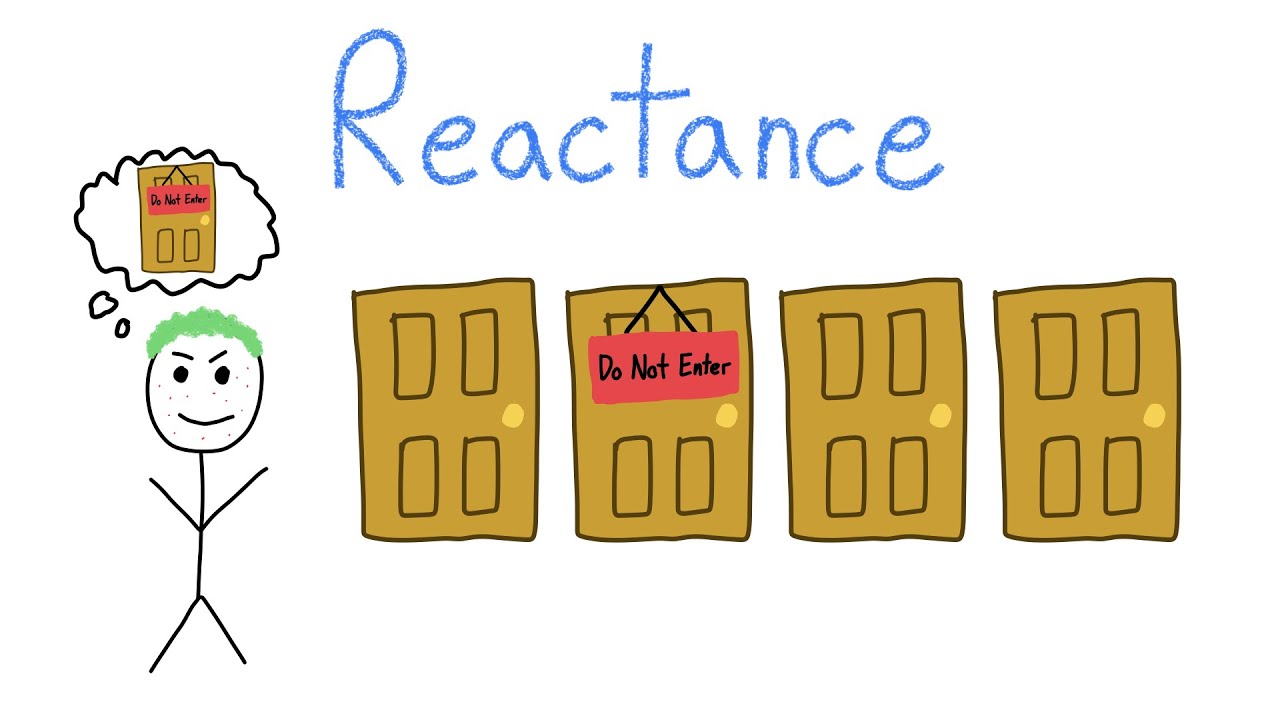Reactance is a cognitive bias that occurs when individuals respond with resistance or defiance when they perceive that their freedom of choice or autonomy is being threatened or restricted. People tend to react against perceived constraints on their choices, leading to behaviors or attitudes that oppose those constraints.
Explanations:
Reactance is rooted in the psychological need for autonomy and control. When individuals feel that their freedom is being curtailed, they may react with defiance to regain a sense of control and autonomy.
Examples:
Parent-Child Conflict: A teenager may become more rebellious and resistant when parents try to impose strict rules or curfews.
Advertising: People might resist purchasing a product or service if they feel that advertising is trying to manipulate or pressure them into making a choice.
Government Mandates: Individuals may oppose or resist compliance with government mandates, such as wearing seat belts or getting vaccinated, if they perceive these mandates as infringements on their personal freedom.
Solutions:
Empowerment and Choice: Offer individuals choices and a sense of empowerment to minimize reactance.
Clear Communication: Communicate the rationale and benefits behind rules or recommendations to reduce perceptions of coercion.
Respect Autonomy: When possible, respect and support individual autonomy and freedom of choice.
Collaborative Decision-Making: Encourage collaborative decision-making and engage in open dialogues to address concerns and fears of control.
Addressing reactance involves recognizing the importance of individual autonomy and the potential for resistance when it is threatened. By promoting autonomy, open communication, and collaborative decision-making, individuals can reduce the likelihood of reactance and its negative consequences.
